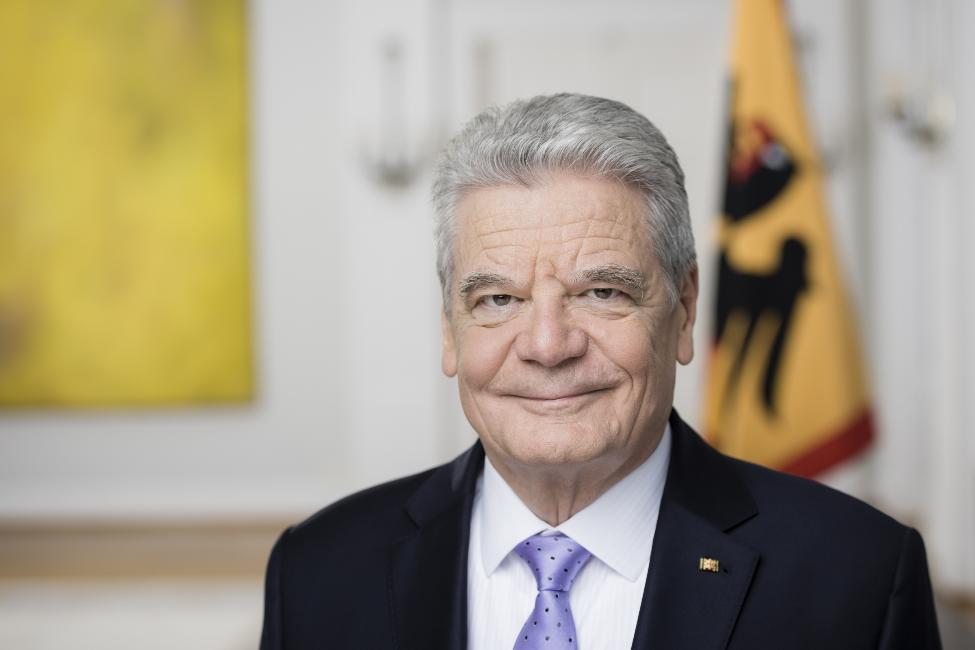Joachim Gauck was born in Rostock in 1940. After gaining his Abitur, the higher education entrance qualification, he studied theology. From 1965 to 1990 he was in the service of the Evangelical Lutheran Church of Mecklenburg, working as a pastor for many years.
Joachim Gauck became involved in the opposition in the GDR at an early age. In 1989 he was one of the founders of the New Forum and became its spokesperson in Rostock. He was among the initiators of the church and popular resistance to the communist regime in the GDR and led the weekly prayers for peace which gave rise to the protest demonstrations.
In March 1990, Joachim Gauck entered the first freely elected GDR parliament as a member of the Alliance 90 – an amalgamation of several grassroots movements – and was elected chairman of the special committee overseeing the dissolution of the Ministry of State Security. On 3 October 1990, he was appointed Special Commissioner of the Federal Government for the files of the State Security Service relating to individuals by Federal President Richard von Weizsäcker on the recommendation of the Federal Government. From 1991 to 2000 he was the Federal Commissioner for the Files of the State Security Service of the former German Democratic Republic.
From 2001 to 2004, Joachim Gauck was the German member of the Management Board of the European Monitoring Centre on Racism and Xenophobia in Vienna.
In 2003, he became the Chairman of the Association "Gegen Vergessen – Für Demokratie" (Against Oblivion – For Democracy).
On 18 March 2012, Joachim Gauck was elected by the Federal Convention and became the eleventh President of the Federal Republic of Germany.
Under the tenet, "For those who have reached adulthood, freedom means responsibility" Federal President Joachim Gauck has encouraged people living in Germany – both the native population and immigrants – to play an active role in shaping their lives as citizens and to take responsibility for themselves and others: "Although fear may be a constant companion, we will not allow it to rob us of confidence in ourselves and in our democracy."
Joachim Gauck regards the Federal Republic as "the best Germany we have ever had": because of the rule of law, its stable democracy and its protection of civil rights; but also because of its internal peace, fostered by an advanced welfare state and economic development that has resulted in prosperity for many. He maintains that this Germany has to be stabilised and defended against nationalist, populist and anti-democratic threats, regardless of where they come from. He is convinced that this Germany also ought to assume greater responsibility for the stabilisation of a peaceful and democratic Europe and – as far as possible – for peaceful development in the world.
He has been awarded numerous honours and prizes for his work, including the Theodor Heuss Medal, the Geschwister Scholl Prize, the European Human Rights Prize and the Ludwig Börne Prize. He has honorary doctorates from the universities of Rostock, Jena and Augsburg, the National University of Ireland/Galway, the Hebrew University of Jerusalem, the Université Paris-Sorbonne and Maastricht University.
Joachim Gauck has lived with Daniela Schadt since 2000. He has four children, twelve grandchildren and six great-grandchildren.


